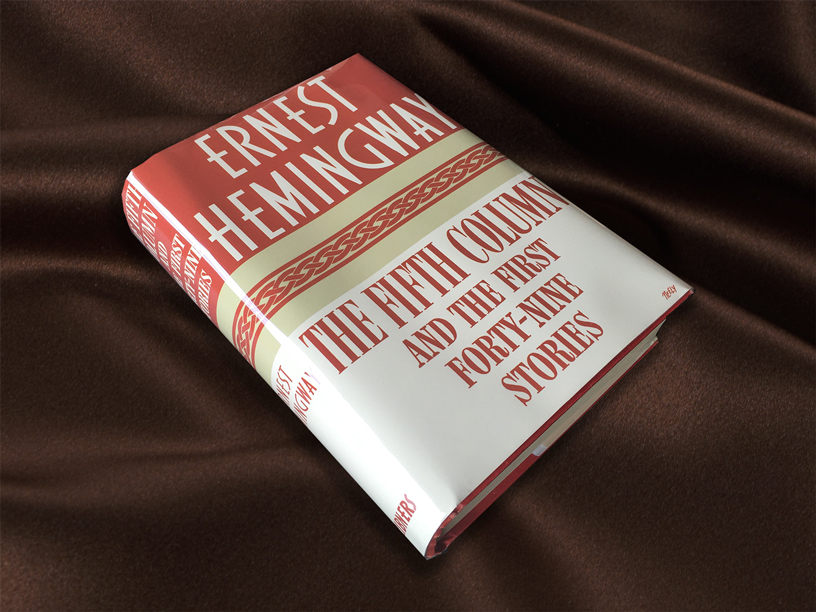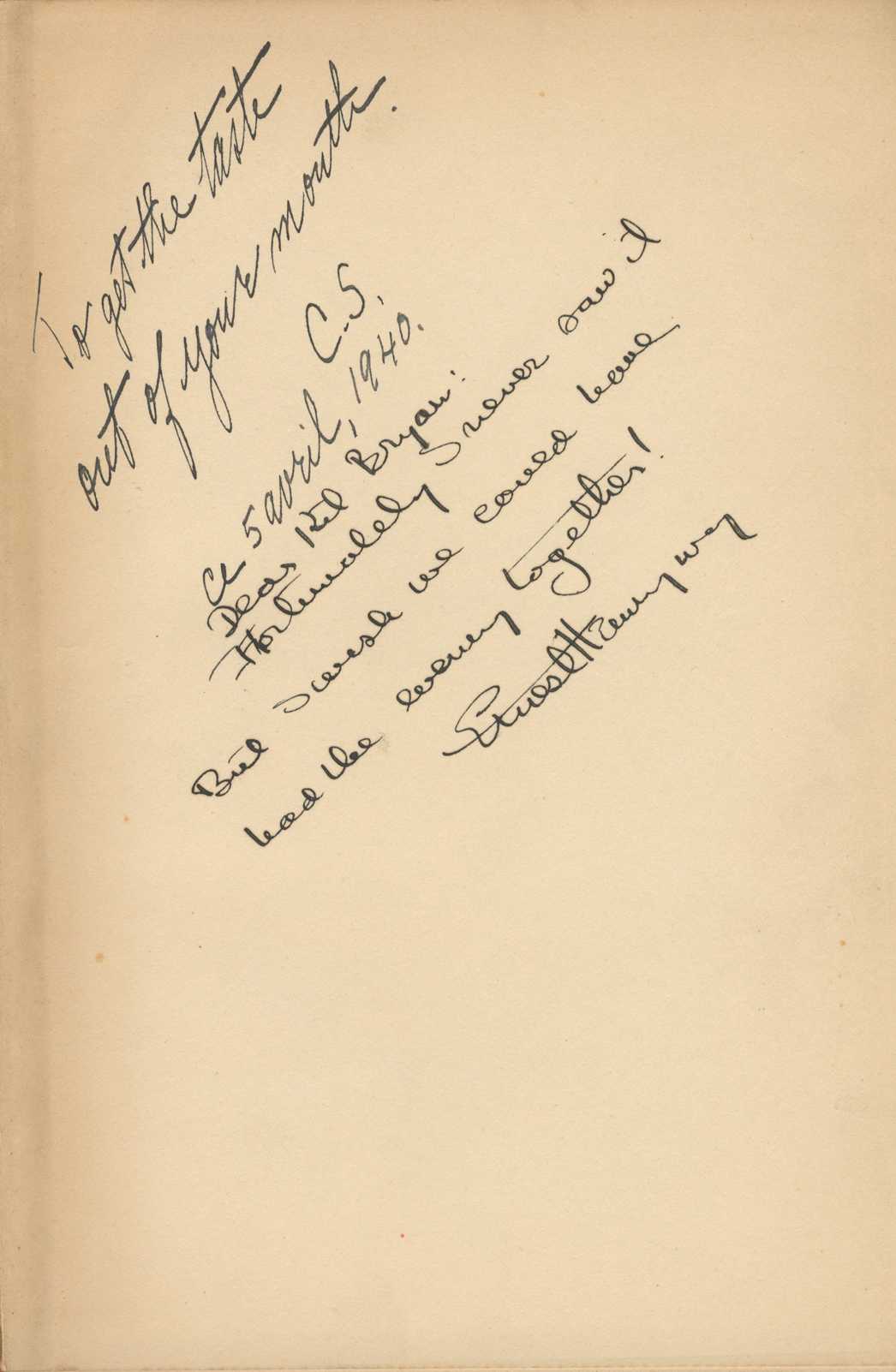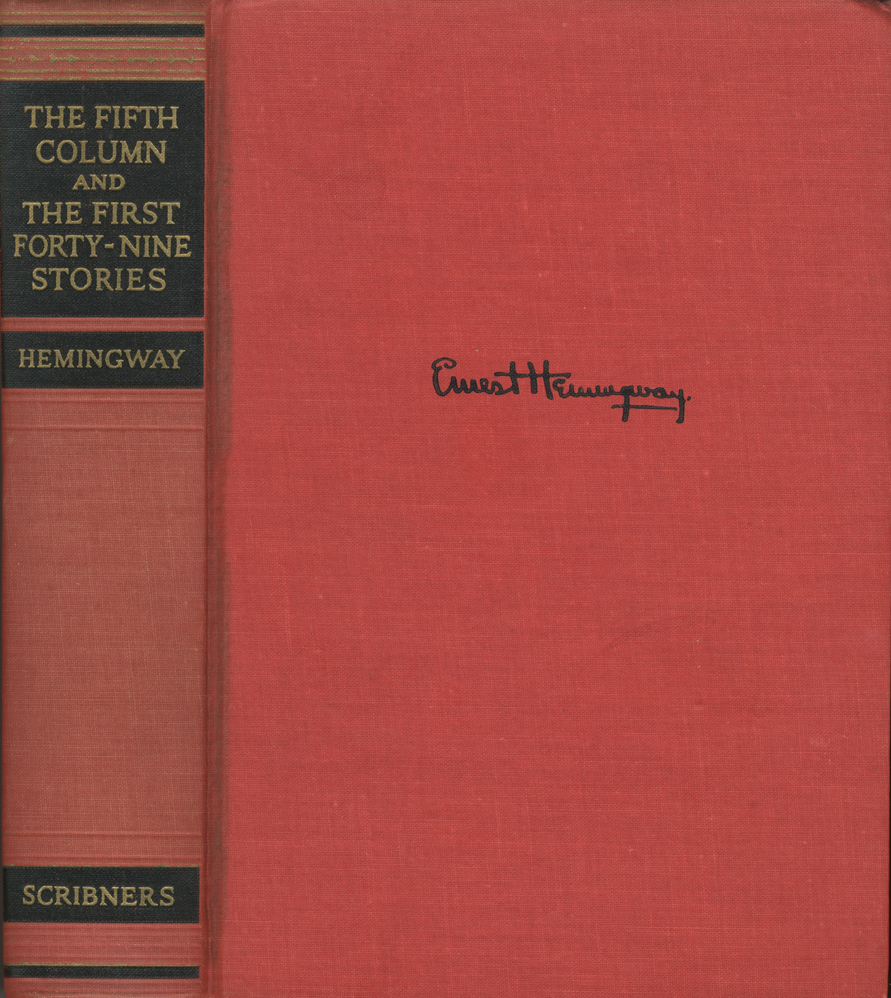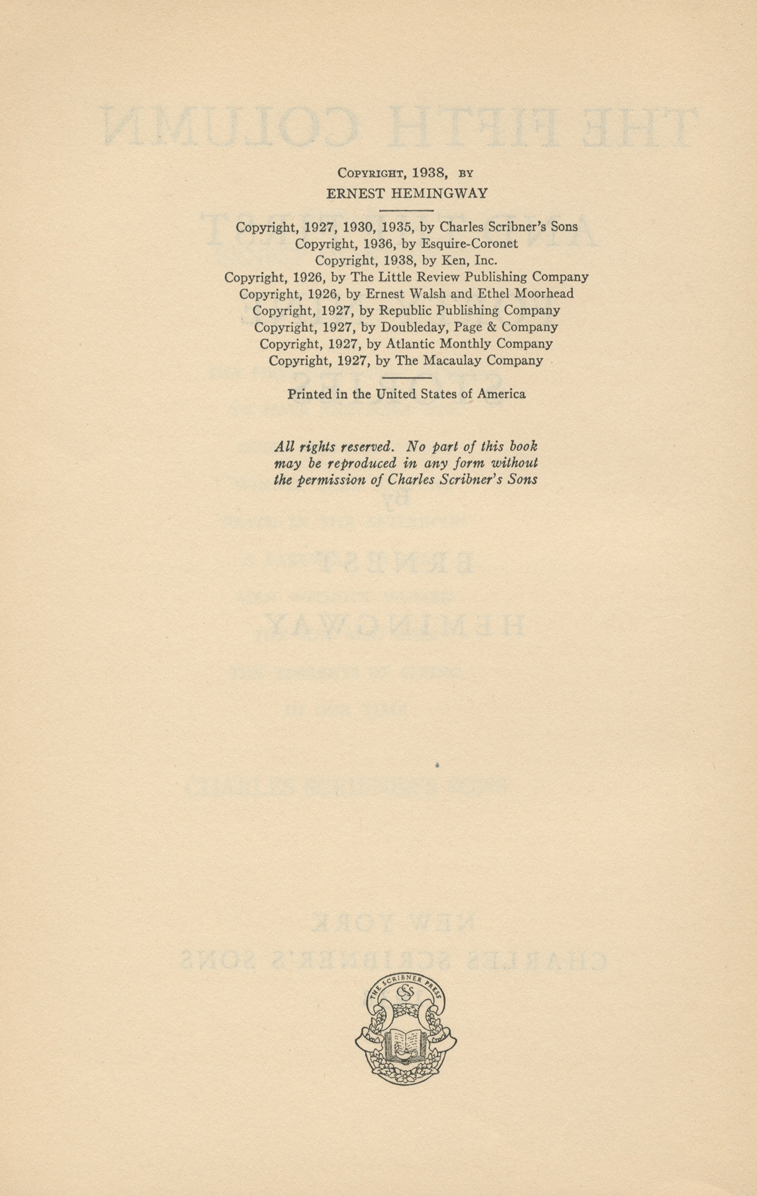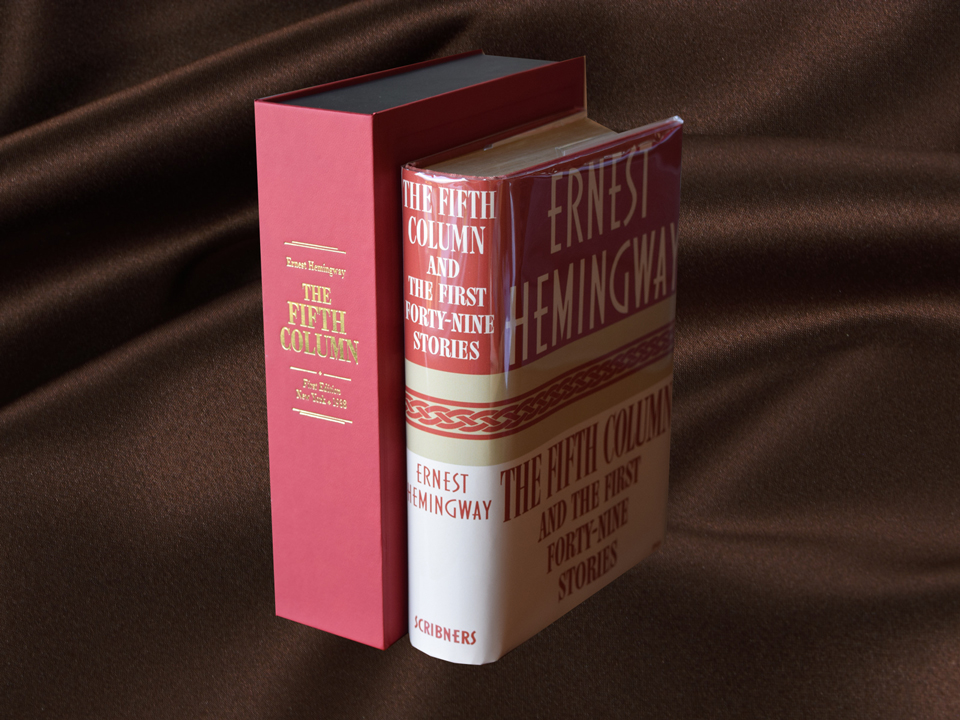Ernest Hemingway
Ernest Hemingway
Signed First Edition “The Fifth Column” - 1938
Unusually scarce signed First Edition of Ernest Hemingway’s The Fifth Column and the First Forty-Nine Stories, published in 1938. Second state identical to the first printing of just 5,350 copies, this issue lacking only the letter “A” but bearing the Scribner’s colophon seal on the copyright page. With new facsimile dust jacket in Mylar (identical to missing original DJ), ensconced in a custom scarlett clamshell case with embossed cover impressions. Overall the book is in Very Good+ condition, clean throughout but for common darkening on the inside edges of the end papers, otherwise fairly tight, with virtually no shelf wear. Dark red boards front and back, spine lightly sunned but gold on black titling still very strong. Hemingway’s facsimile signature appears on cover.
There are two rather ascerbic inscriptions on the first free end paper. The main one, of course, is handwritten by Hemingway himself, and reads:
“Dear Kit Bryan:
Fortunately I never saw it
But I wish we could have
had the evening together!
Ernest Hemingway”
With thanks to our friend Charles Scribner—and his always welcome sleuthing when dealing with the most enduring books of his family’s publishing house—he offered a few insights into the stage play for which this book was titled:
“I can offer these clues: the inscriptions clearly refer to the short-lived Theatre Guild production of ‘The Fifth Column’ on Broadway [March 6 to May 18, 1940] as the date by ‘CS’ is 5 April, a month into the run, and he [Hemingway] clearly did not like the performance—but considers the book an effective antidote! Hemingway’s later [so it seems since the play closed in May] inscription mentions the fact that he ‘fortunately’ never saw the Broadway production—but clearly Kit Bryan did and so he adds ‘But I wish we could have had the evening together’—very gracious!”
The inscription above Hemingway’s remains a bit of a mystery, although Charles has ruled out the writing as being in the hand of either his father or his grandfather, thus eliminating the possibility of “C.S.” being either of the former Charles Scribners. But this particular inscription is telling in other ways:
“To get the taste
out of your mouth.
C.S.
ce 5 avril, 1940.”
Our best guess, then, would be that the elusive “C.S.” had obtained this signed copy of the book directly from its author, for his or her friend “Kit Bryan” who likely concurred with Hemingway’s critique of the production, and who might better appreciate the story in its original form. And since Hemingway expressed his wish to have had the evening together, it’s possible the author knew the recipient, though we could find no mention of the name in any of Hemingway’s letters nor among the Hemingway archives at the JFK Library.
The Fifth Column was the only full-length play Ernest Hemingway had written, working on it while he was a correspondent covering the Spanish Civil War in 1937. The play takes its name from Franco’s remark that he had four columns advancing on Madrid and a fifth column of loyalists inside the city ready to attack from the rear. The Fifth Column is not about Franco sympathizers, however, but about an American war correspondent who is a secret agent for the Republicans, and Hemingway worked on it while holed up in the Hotel Florida with all the other war correspondents. (This particular scene was robustly portrayed in the 2012 film Hemingway & Gellhorn, by the way.)

